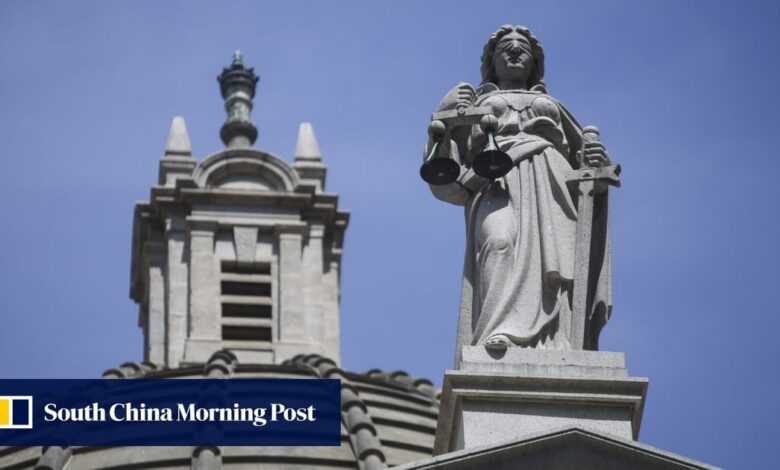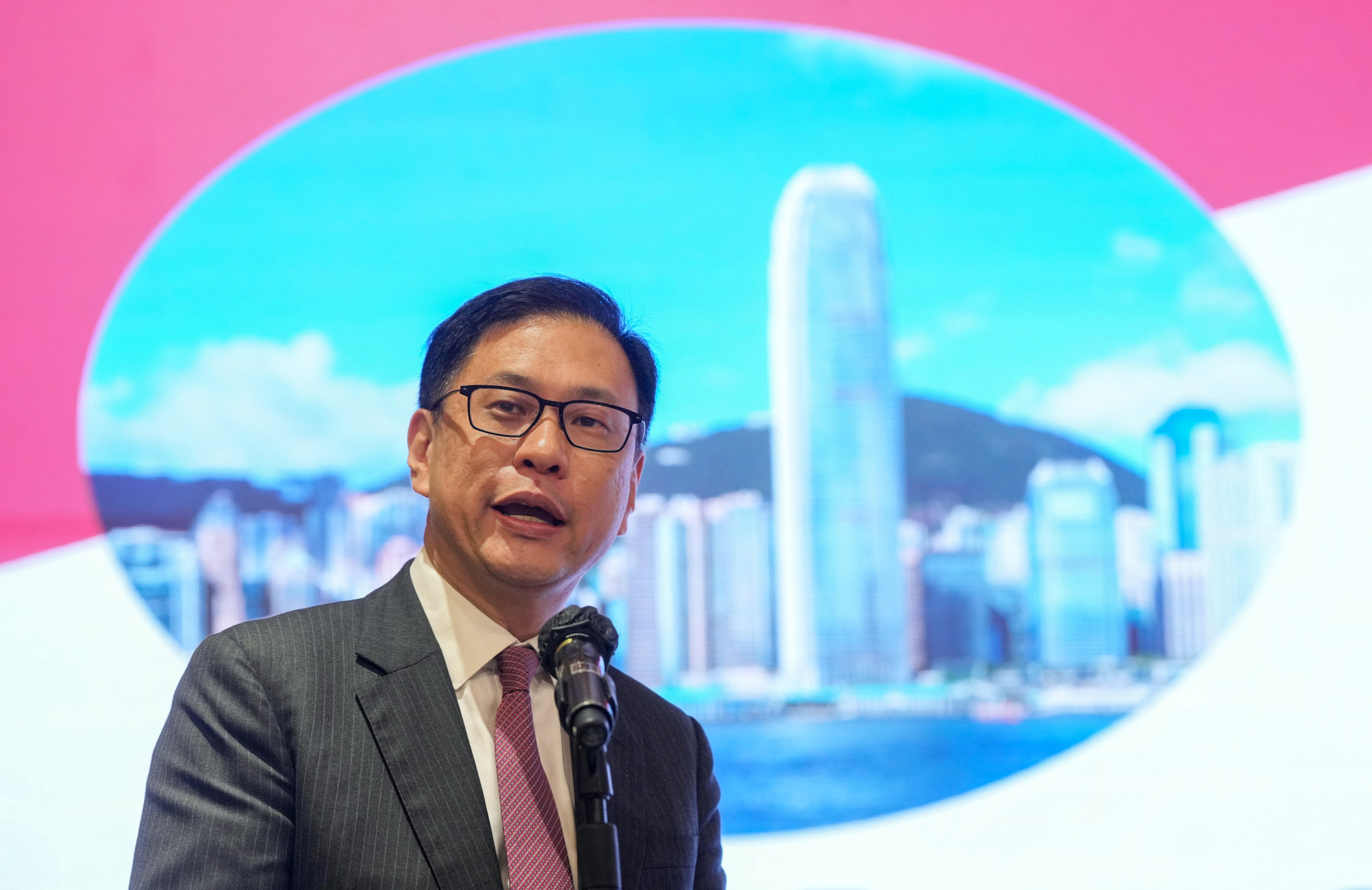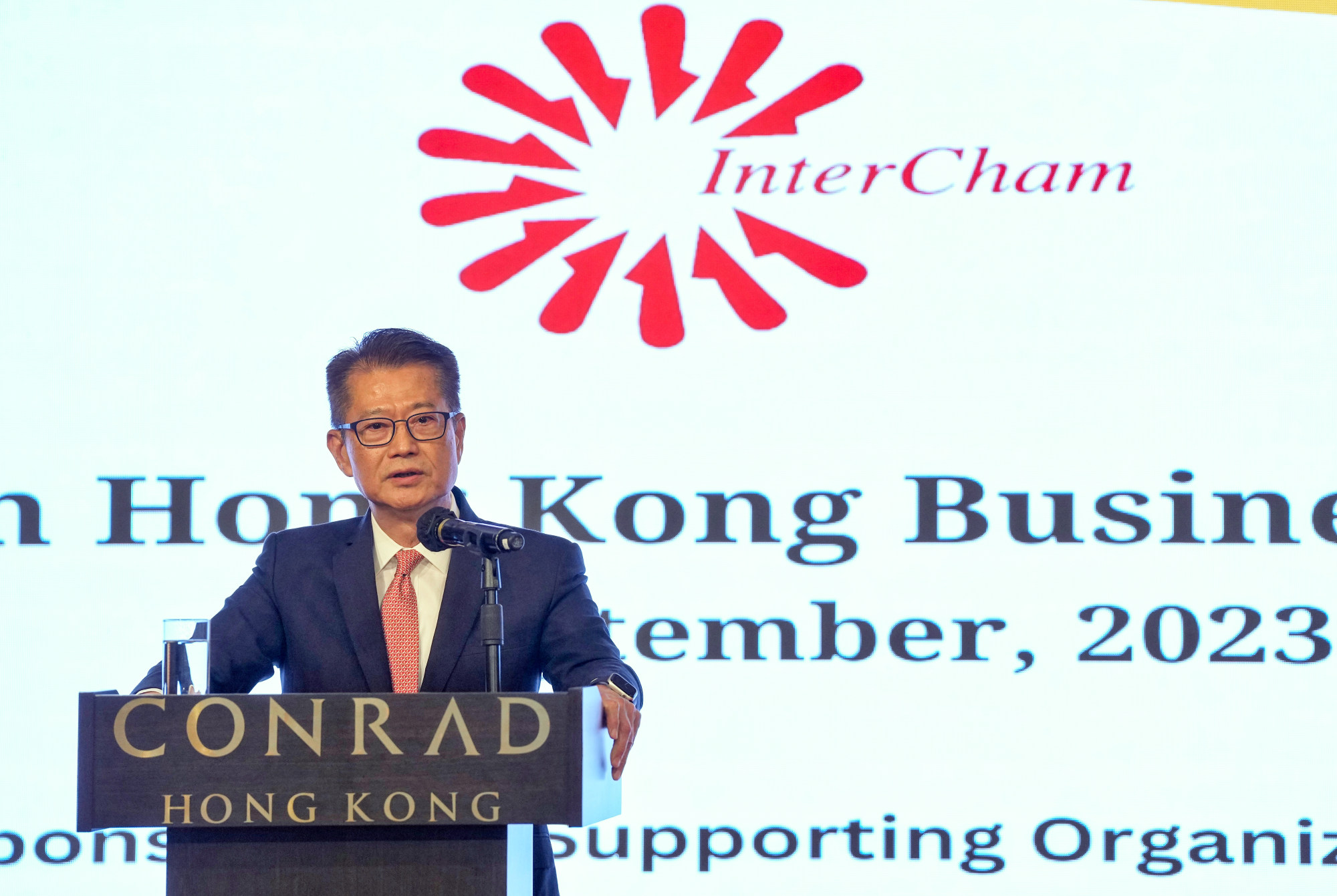Hong Kong Bar Association chief warns possible US sanctions on judges pose ‘real threat’ to judiciary’s hunt for top talent

[ad_1]
The chairman of the Hong Kong Bar Association has warned that the United States could pose a “real threat” to the city’s legal system if the country decided to sanction local judges, arguing the move would prevent the judiciary from recruiting top talent.
Senior Counsel Victor Dawes, the organisation’s head, on Monday urged the business communities to promote the city’s legal system overseas and said it enjoyed the support of the country’s central government.
The US Congressional-Executive Commission in May proposed sanctioning 29 Hong Kong judges hand-picked to hear national security cases, claiming such trials had undermined freedoms and democracy in the city.

“We firmly believe that sanctions by the US government will not actually improve the rule of law and administration of justice in Hong Kong,” the association chair said at a lunch hosted by InterCham, an affiliation of international chambers of commerce in the city.
“Will our judges and prosecutors be fairer or have more regard to the fundamental rights of the defendant once they are sanctioned? I believe the answer is obvious.”
Members of the city’s judiciary listed as potential targets for US sanctions included top judge Andrew Cheung Kui-nung, as well as Court of Final Appeal justices Roberto Ribeiro, Joseph Fok and Johnson Lam Man-hon.
Dawes on Monday warned the judiciary was suffering from brain drain after three years under the Covid-19 pandemic, with the threat of sanctions likely to have a “decisive impact” on the courts ability to bring in top talent.
Hong Kong professional bodies vow to investigate complaints against wanted members
Hong Kong professional bodies vow to investigate complaints against wanted members
The manpower shortage also posed a “vicious cycle” as potential candidates would be deterred by the prospect that they could be “paid less and doing more work”, he added.
But the association chairman expressed confidence in the future of Hong Kong’s common law system as it was guaranteed under the “one country, two systems” governing principle, which Beijing has pledged to uphold.
He also called on the business leaders in the city to promote the advantages of the local legal system and said the sector comprised internationally-minded people with a keen understanding of the common law and trained at the best institutions in the world.

Appearing at the same event, Financial Secretary Paul Chan Mo-po hit back at an emerging opinion among Western nations that Hong Kong was no longer distinct from a mainland Chinese city and called the notion “misplaced”.
He stressed that Beijing was “entirely committed” to maintaining the one country, two systems principle for the long haul.
“No doubt it is our country’s compelling interest to ensure Hong Kong as an international financial centre and as the premium gateway for trade, investment, talent, as well as travel between the mainland and the rest of the world,” he said.
Investors should look to ‘Hong Kong as financing platform’ for belt and road projects
Investors should look to ‘Hong Kong as financing platform’ for belt and road projects
Chan also discussed the government’s multiple-pronged effort to promote Hong Kong and clear up misunderstandings held by some in the international community, with the minister expected to leave for Europe at the end of the week.
The city would also host the Global Financial Leaders’ Investment Summit in November and planned for the event to be bigger than last year’s, he said.
The financial secretary said industry leaders from around the world were keen to attend the forum, which is held by the Hong Kong Monetary Authority, and learn more about potential business opportunities in the region.
[ad_2]
Source link





